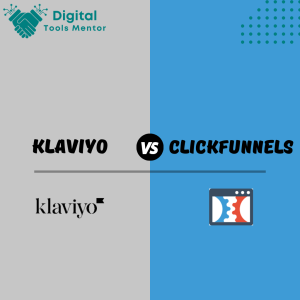AI Role in Modern SEO Strategies
In the ever-evolving digital landscape, two forces have become increasingly pivotal: Artificial Intelligence (AI) and Search Engine Optimization (SEO). Their convergence marks a significant shift in how digital content is created, optimized, and consumed. Understanding the role of AI in modern SEO strategies begins with a clear comprehension of each element and their evolution.
Artificial Intelligence (AI) refers to the simulation of human intelligence in machines. These AI systems are designed to think, learn, and make decisions, replicating human cognitive functions. In today’s digital age, AI’s relevance extends across various industries, from automating routine tasks to providing complex data analyses and insights. It’s not just about machines performing tasks; it’s about them doing so in a way that is continuously learning and adapting to new information.
AI’s influence in the digital world is profound. It has reshaped how we interact with technology, from personalized recommendations on streaming services to AI-driven customer support. In essence, AI has become a cornerstone in enhancing user experience and driving technological innovation.
Search Engine Optimization (SEO), on the other hand, is the practice of increasing the quantity and quality of traffic to a website through organic search engine results. It’s a blend of art and science, requiring an understanding of how search engines work, what people are searching for, and how to align content with these insights.
Historically, SEO was quite basic, focusing primarily on incorporating keywords into web pages to rank higher in search engine results. However, as technology advanced, so did SEO. The introduction of sophisticated algorithms by search engines like Google led to a more complex SEO landscape. These changes emphasized not only keywords but also the relevance, quality, and value of content, along with the user experience offered by websites.
The advent of AI in SEO marks the latest chapter in this evolution. AI technologies such as machine learning and natural language processing are now being integrated into SEO strategies. This integration allows for more nuanced content optimization, better understanding of user intent, and enhanced personalization, thereby revolutionizing the way SEO is approached.
The interplay between AI and SEO represents a significant shift in the digital marketing realm. As AI continues to advance, its integration into SEO strategies becomes not just beneficial but essential for staying competitive in the dynamic and ever-changing digital landscape.
The Basics of AI in SEO
To grasp the full impact of Artificial Intelligence (AI) on Search Engine Optimization (SEO), it’s essential to first understand the basics of AI and how it seamlessly integrates with SEO strategies. This understanding lays the foundation for comprehending the more advanced applications of AI in the realm of digital marketing.
Understanding AI: A Simple Explanation of Artificial Intelligence
Artificial Intelligence (AI) can be simply described as the capability of a machine to imitate intelligent human behavior. At its core, AI is about creating algorithms that allow computers to perform tasks that would typically require human intelligence. These tasks include learning from data, making decisions based on that data, and solving complex problems.
AI operates on the principles of machine learning and natural language processing. Machine learning enables AI systems to learn and improve from experience without being explicitly programmed. In contrast, natural language processing allows AI to understand and interact using human language. Together, these technologies enable AI to analyze vast amounts of data, identify patterns, and make predictions, making it a powerful tool in various applications.
How AI Intersects with SEO: A Primer on Their Collaborative Role
When it comes to SEO, AI is not just a supplementary tool; it’s a game-changer. AI intersects with SEO in several key areas:
- Keyword Analysis and Content Optimization: AI algorithms can go beyond traditional keyword density metrics. They can understand the context and intent behind searches, allowing for the creation of content that’s not just keyword-rich but also relevant and valuable to the user.
- User Experience and Personalization: AI aids in personalizing the user experience on websites. By analyzing user data, AI can help tailor content, recommendations, and even site layout to individual user preferences, enhancing user engagement and satisfaction.
- Predictive Analysis and Trend Identification: AI excels in analyzing large datasets to identify emerging trends and patterns. In SEO, this means being able to anticipate changes in user behavior or search engine algorithms, allowing for more proactive and adaptive strategies.
- Automation of Routine Tasks: Many aspects of SEO, like site audits, backlink analysis, and reporting, can be automated with AI. This automation frees up time for SEO professionals to focus on more strategic and creative aspects of their jobs.
In essence, the collaboration of AI and SEO marks a transition from a keyword-centric approach to a more holistic, user-focused strategy. It’s about leveraging the power of AI to not only optimize for search engines but to also create a more engaging and personalized user experience. As AI continues to evolve, its integration into SEO practices is becoming increasingly sophisticated, paving the way for more effective and efficient digital marketing strategies.
AI-Driven Keyword Research and Analysis
The advent of Artificial Intelligence (AI) in the realm of SEO has revolutionized the approach to keyword research and analysis. Moving beyond traditional methods, AI-driven keyword research offers a more nuanced and effective strategy for optimizing content in line with user intent and search engine algorithms.
Moving Beyond Traditional Keyword Research
Traditionally, keyword research has been about identifying specific words and phrases that users type into search engines, with a focus on metrics like search volume and keyword density. However, this approach often overlooks the broader context and the actual intent behind searches.
AI-driven keyword research transcends this limitation by not only identifying relevant keywords but also understanding the context in which they are used. AI algorithms, powered by machine learning, can analyze large datasets from search queries, user interactions, and other relevant sources to identify patterns and trends that inform keyword strategy.
This advanced method goes beyond just finding popular keywords; it involves understanding the semantics of language used in search queries, recognizing the variations in user intent, and predicting emerging trends that might not yet be reflected in traditional keyword tools.
AI’s Role in Understanding Search Intent and Contextual Relevance
AI plays a crucial role in deciphering the intent behind a user’s search query, which is fundamental for creating relevant and valuable content. It’s not enough to match keywords; the content must align with what the user is seeking. AI uses natural language processing to interpret the nuances of search queries, distinguishing between informational, navigational, and transactional intents.
For instance, AI can differentiate whether a search for “apple” refers to the fruit, the tech company, or perhaps a specific product like the iPhone. This level of understanding allows for more targeted and effective content optimization, ensuring that users find the information they are searching for, which, in turn, improves the website’s search engine ranking.
Furthermore, AI’s ability to analyze user behavior and preferences enhances the contextual relevance of content. By understanding patterns in user searches and interactions, AI can suggest topics that are not only keyword-rich but also aligned with current user interests and needs.
In summary, AI-driven keyword research and analysis mark a significant shift from traditional keyword-focused SEO practices. By incorporating AI, SEO strategies become more adaptive, user-centric, and effective in matching content with the evolving landscape of user search behavior and expectations.
Content Optimization with AI
The integration of Artificial Intelligence (AI) into content creation and optimization represents a significant advancement in digital marketing strategies. AI is not just altering the way content is produced; it’s revolutionizing how it’s optimized for both search engines and user engagement.
AI’s Impact on Content Creation and Optimization
AI’s influence on content creation extends far beyond simple keyword insertion. It encompasses a comprehensive understanding of content context, user intent, and the subtle nuances that make content both appealing to readers and favorable for search engine rankings.
- Enhanced Quality and Relevance: AI tools can analyze existing content on the web to identify gaps and opportunities, suggesting improvements or new topics that resonate with the target audience. This leads to the creation of high-quality content that is both relevant and informative.
- Search Intent Matching: AI algorithms excel at interpreting the intent behind user searches, enabling the creation of content that precisely meets the users’ needs. This approach ensures that content is not just visible but also valuable to those who find it.
- SEO-Friendly Content: AI assists in optimizing content structure, from headline creation to meta descriptions, ensuring that all elements are aligned with SEO best practices.
- Continuous Learning and Adaptation: AI systems learn from user interactions, feedback, and changing search engine algorithms. This continuous learning process enables real-time content optimization, ensuring that the content remains relevant and effective.
Examples of AI Tools Aiding in Content Strategy
Several AI tools have emerged as game-changers in content strategy and optimization:
- MarketMuse: MarketMuse uses AI to analyze content and compare it to what’s already out there, providing insights on how to improve content quality, find new topic opportunities, and optimize for search engines. It suggests content structures, relevant topics, and key questions that the target audience might seek answers to.
- Clearscope: Clearscope leverages AI to help content creators understand and implement the best keywords and phrases for their content. It provides detailed recommendations on how to optimize articles, blogs, or web pages to rank higher in search results and reach the intended audience more effectively.
These tools represent the forefront of AI-driven content strategy, offering powerful solutions for creating and optimizing content in a way that aligns with both search engine algorithms and user preferences. By leveraging AI, content creators and SEO professionals can ensure their content is not just seen but is also engaging, relevant, and impactful.
AI and User Experience: Personalization at its Best
The incorporation of Artificial Intelligence (AI) in enhancing user experience (UX) has become a cornerstone in modern digital strategy. AI-driven personalization tailors the user’s journey on a website, making it more relevant, engaging, and user-friendly. This approach not only improves user satisfaction but also significantly impacts key performance metrics like conversion rates, bounce rates, and user retention.
Enhancing User Experience Through AI-Driven Personalization
AI personalization in UX is about delivering content and experiences that are aligned with the individual user’s preferences, behaviors, and interests. This personalization can manifest in various ways:
- Content Personalization: AI algorithms analyze user data such as browsing history, previous interactions, and preferences to deliver personalized content. This might include recommended articles, products, or services tailored to the user’s interests.
- Dynamic User Interfaces: AI can adjust the layout and features of a website in real-time based on user interactions. For instance, if a user frequently visits a particular section of a website, AI can make that section more prominent and accessible in future visits.
- Predictive Search: AI enhances search functionality by predicting and suggesting search queries based on the user’s typing patterns and previous search history, thereby streamlining the user’s search experience.
- Chatbots and Virtual Assistants: AI-powered chatbots can provide immediate assistance and support, enhancing user interaction with the website. They can answer queries, guide users through the site, and provide personalized recommendations.
Case Studies of Successful AI Implementation in Website UX/UI
Several companies have successfully implemented AI in their website UX/UI, demonstrating the tangible benefits of this approach:
- Netflix: Netflix uses AI to personalize the viewing experience for its users. By analyzing viewing history and user ratings, Netflix’s AI system recommends shows and movies that align with individual user preferences. This personalization not only enhances user experience but also increases viewer engagement and subscription retention.
- Amazon: Amazon’s AI-driven recommendation system is a prime example of personalized UX. The AI algorithm suggests products based on the user’s browsing history, past purchases, and items frequently bought together, creating a highly personalized shopping experience.
- Spotify: Spotify utilizes AI to personalize music playlists and suggest new songs and artists to users. This is based on their listening history, genre preferences, and what similar users are listening to, making the user experience deeply personal and engaging.
These case studies highlight the potential of AI in transforming website UX/UI. By leveraging AI for personalization, businesses can create more meaningful and satisfying user experiences, leading to improved engagement, customer satisfaction, and loyalty.
The Role of AI in Data Analytics and Decision Making
In the ever-evolving landscape of digital marketing, Artificial Intelligence (AI) has become a pivotal tool in transforming data analytics and enhancing decision-making processes, particularly in the realm of Search Engine Optimization (SEO). AI’s ability to sift through, analyze, and interpret vast amounts of data offers unprecedented opportunities for developing targeted, effective SEO strategies.
How AI Transforms Data into Actionable Insights
AI excels in its capacity to process and analyze large datasets much more efficiently than humans can. In the context of SEO, this capability is invaluable. AI-powered analytics tools can examine user behavior, search patterns, market trends, and website performance metrics to glean insights that might be invisible to the naked eye.
- Pattern Recognition: AI algorithms can identify patterns and trends in user behavior, such as the most frequented pages on a website, common search queries, or typical user pathways. Recognizing these patterns enables the optimization of content and website structure to align with user preferences.
- Predictive Analytics: AI goes beyond analyzing past and present data; it can predict future trends. This predictive power allows SEO strategists to anticipate changes in consumer behavior, search algorithm updates, or emerging market trends, staying ahead of the curve in SEO planning.
- Sentiment Analysis: AI can evaluate user sentiment based on their interactions online, providing insights into how audiences perceive a brand, product, or content. This information is crucial for tailoring messaging and content to resonate more effectively with the target audience.
The Importance of AI in Strategic Decision Making for SEO
Incorporating AI into SEO decision-making processes brings a level of precision and foresight that traditional methods cannot match. AI’s analytical capabilities enable more informed, data-driven decisions, leading to more effective and successful SEO strategies.
- Customized SEO Strategies: Based on AI insights, SEO strategies can be tailored to target specific audience segments, adapt to regional differences, or focus on high-opportunity areas.
- Resource Optimization: AI helps in identifying the most impactful SEO tactics, ensuring that resources are allocated efficiently and efforts are focused on strategies that yield the best results.
- Adapting to Search Engine Algorithms: With search engines constantly evolving their algorithms, AI tools can help decipher these changes and adapt strategies accordingly. This ensures continuous optimization of content in line with the latest SEO best practices.
- Real-Time Decision Making: AI’s real-time analysis capabilities mean that SEO strategies can be adjusted on the fly in response to immediate data, rather than waiting for periodic reviews.
In conclusion, AI’s role in data analytics and decision making has transformed SEO into a more precise, adaptive, and effective discipline. By leveraging AI’s power to turn data into actionable insights, SEO professionals can craft strategies that are not only data-driven but also dynamically aligned with the ever-changing digital landscape.
Ethical Considerations and Challenges
The integration of Artificial Intelligence (AI) in Search Engine Optimization (SEO) has brought about remarkable advancements. However, it also raises significant ethical considerations and challenges. Addressing these issues is crucial to ensure that the use of AI in SEO remains responsible, fair, and beneficial for all stakeholders.
Addressing the Ethical Implications of AI in SEO
Ethical implications in the use of AI for SEO primarily revolve around transparency, fairness, and privacy:
- Transparency and Accountability: There should be clarity about how AI algorithms make decisions and rank content. SEO practices must not manipulate or exploit these algorithms in ways that lead to unfair advantages or mislead users.
- Bias and Fairness: AI systems are only as unbiased as the data they’re trained on. There’s a risk of perpetuating existing biases, whether in terms of content visibility, accessibility, or relevance. Ensuring fairness means continuously monitoring and adjusting AI algorithms to avoid discrimination against certain groups or topics.
- Data Privacy and Security: AI-driven SEO often involves collecting and analyzing vast amounts of user data. It’s imperative to handle this data responsibly, adhering to privacy laws and ethical standards, and ensuring that users’ information is secure and used with consent.
Navigating the Challenges and Biases of AI-Driven Strategies
While AI can significantly enhance SEO strategies, it’s essential to navigate its challenges and inherent biases carefully:
- Over-reliance on AI: There’s a risk of becoming too reliant on AI, overlooking the human element in content creation and SEO strategy. Balancing AI insights with human judgment and creativity is vital.
- Algorithmic Bias: AI algorithms might develop biases based on the data they’re fed. Regular audits and updates are necessary to ensure these algorithms do not unfairly favor or penalize certain types of content or websites.
- Keeping Up with AI Evolution: AI in SEO is a rapidly evolving field. Staying informed and adapting to these changes, while maintaining ethical standards, can be challenging but is essential for the integrity and effectiveness of SEO strategies.
- Ethical Use of Competitive Intelligence: AI tools can provide significant insights into competitors’ strategies. Ethical considerations should guide the use of this intelligence to avoid practices like copycat strategies or unfair competitive tactics.
In summary, while AI offers transformative potential for SEO, navigating its ethical considerations and challenges is crucial. This involves ensuring transparency, fairness, and privacy in AI applications, balancing AI with human oversight, and committing to ethical practices in SEO strategy development. By addressing these ethical implications, businesses and SEO professionals can leverage AI to not only enhance their strategies but also maintain trust and integrity in the digital landscape.
Preparing for an AI-Focused SEO Future
As we forge into an era where Artificial Intelligence (AI) plays a pivotal role in Search Engine Optimization (SEO), preparing for an AI-focused future is essential. This preparation involves not only keeping abreast of AI advancements but also integrating AI into SEO practices in a responsible and effective manner.
Staying Ahead: Keeping Up with AI Advancements in SEO
The landscape of AI in SEO is continuously evolving, with new technologies and approaches emerging regularly. Staying ahead in this dynamic environment requires a commitment to ongoing learning and adaptation:
- Continuous Learning and Education: Keeping up-to-date with the latest AI technologies, tools, and trends is crucial. This can be achieved through industry publications, online courses, webinars, and conferences that focus on the intersection of AI and SEO.
- Networking with Industry Experts: Engaging with a community of SEO professionals and AI experts can provide valuable insights and shared experiences. This can be facilitated through professional networks, online forums, and industry events.
- Experimentation and Testing: Implementing AI tools and strategies involves a degree of trial and error. Regularly experimenting with new AI technologies and testing their impact on SEO strategies is key to understanding what works best for your specific context.
- Adapting to Changes in Search Engine Algorithms: AI plays a significant role in how search engines evolve their algorithms. Staying informed about these changes and understanding how AI influences these updates is critical for adapting SEO strategies accordingly.
Integrating AI Responsibly and Effectively into SEO Practices
The integration of AI into SEO should be done with a focus on responsibility and effectiveness:
- Ethical Considerations: As AI becomes more integral to SEO, it’s important to consider the ethical implications of AI-driven strategies. This includes respecting user privacy, ensuring data security, and avoiding manipulative or deceptive practices.
- Balancing AI with Human Insight: While AI can provide valuable data-driven insights, it’s important to balance these with human creativity and understanding. The human element remains crucial in crafting content that resonates with audiences and aligns with brand values.
- Customizing AI Applications: AI tools and solutions are not one-size-fits-all. Customizing these tools to align with specific business goals, audience needs, and SEO objectives is essential for effective integration.
- Measuring and Analyzing AI’s Impact: Regularly assessing the impact of AI on SEO performance is necessary to understand its effectiveness. This involves analyzing metrics such as traffic, engagement, conversion rates, and search rankings.
In conclusion, preparing for an AI-focused SEO future is about embracing change, continuously learning, and integrating AI into SEO practices in a way that is both responsible and effective. By doing so, businesses and SEO professionals can leverage AI not just as a tool for optimization, but as a transformative force that drives forward-thinking and innovative SEO strategies.
Read other AI Powered SEO Blogs
AI Role in Modern SEO Strategies: Conclusion
The journey into the realm of AI-driven SEO underscores a significant shift in the landscape of digital marketing. The integration of Artificial Intelligence into SEO strategies has opened new doors for innovation, efficiency, and effectiveness in optimizing digital content.
AI has transformed SEO from a keyword-centric discipline into a sophisticated practice that focuses on user intent, predictive analytics, and personalized content. It has enabled a deeper understanding of user behavior, enhanced the relevancy of content, and streamlined the decision-making process. AI’s ability to analyze vast datasets and provide actionable insights has revolutionized the way SEO professionals approach optimization, making strategies more dynamic and responsive to both search engine algorithms and user needs.
As we embrace the capabilities of AI in SEO, it’s essential to maintain a balanced and ethical approach. This includes respecting user privacy, ensuring the transparency of AI algorithms, and safeguarding against biases. The future of SEO lies in the harmonious integration of AI with human creativity and ethical considerations, ensuring that strategies are not only effective but also fair and responsible.
In summary, AI’s role in modern SEO strategies is transformative and far-reaching. It offers exciting opportunities for innovation and growth but also calls for a thoughtful, ethical approach to its application. As AI continues to evolve, so too must our strategies, ensuring that they remain effective, responsible, and aligned with the ever-changing digital marketing landscape.




